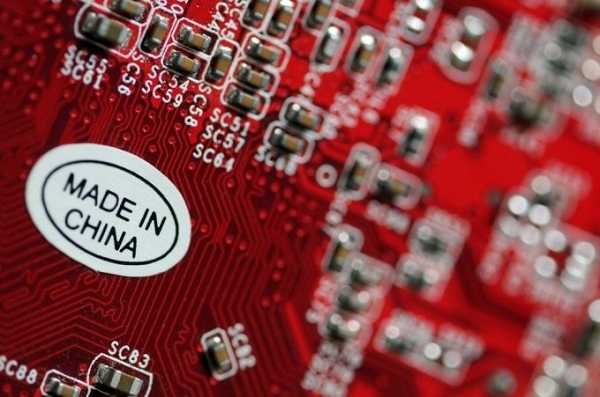
China is working relentlessly to fly solo in the memory chip market in the face of intensifying sanctions from the US, according to industry sources and media reports.
The world’s No.2 economy has been spearheading the so-called DRAM project to become independent in chip-making. Currently, China is buying memory chips from abroad to build hardware, then export it back outside the country.
In particular, the Beijing government has been spurring on three chipmakers for the national project; Yangtze Memory Technologies Co. (YMTC), ChangXin Memory Technologies (CXMT) and Fujian Jinhua Integrated Circuit Company (JHICC). YMTC manufactures NAND flash, while CXMT and JHICC are producers of DRAM.
trio are called the “hope of Chinese memory chips,” according to Chinese tech news ICSmart that recently released a feature article on them.
YMTC is a part of top Chinese chipmaker Tsinghua Unigroup, and it’s set to begin mass producing 64-layer 3D NAND Flash that it self-developed in the latter half of this year. The firm is out to grab a 20% global market share by 2023.
Every year, the company is investing $1 billion and employing 3,000 workers for R&D. “A 20% market share would reward us with an annual $10 billion,” said YMTC executive director Gao Qiquan.
CXMT, one of China’s leaders in DRAM, has also succeeded to manufacturing memory chips. In July last year, the firm said it has begun pilot manufacturing the 8Gb DDR4. It’s the first DRAM developed completely by a Chinese firm.
The chips are to be produced commercially within the year. In December last year, Hubei ChangXin – CXMT’s regional affiliate in Hubei – announced that it has successfully redesigned DRAM. These efforts are aimed at minimizing the reliance on US technology amid the ongoing trade war, according to market watchers.
Next year, CXMT plans to break the ground for its second plant as a part of a 5-year DRAM project to complete the 17nm technology by 2021.
Meanwhile, JHICC is one of the three that’s being affected by the US sanctions. Just a year ago, the firm had been expected to produce DRAM ahead of CXMT. But the plans fell through after the US government indicted CXMT for industrial espionage. The US Department of Justice also banned US exports to JHICC.
This precedent is another reason why CXMT is redesigning DRAM; so as not to repeat JHICC’s mistakes.
Despite the efforts and strategy, however, critics say China won’t be able to catch up with Samsung or SK hynix within the next decade.
ICSmart refuted the claims, saying that in the end, China’s efforts would bear fruit.

